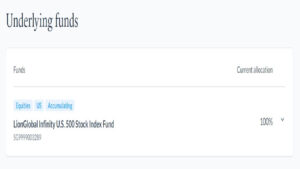The failure to manage fear in a market downturn is the most common reason that causes investors to lose money in investing. The fear of losing the capital invested tends to force investors to sell an asset at a low market price. It is particularly prominent during a market downturn.
The decision to sell an asset at a price lower than the purchase price might sound irrational. However, why are there still so many investors falling into this trap? How can we possibly prevent that from happening?
Let’s look at five of them in more detail.
1. An excessive amount of investment
The biggest reason that triggers fear during a market downturn is investing an excessive amount of capital. You are less likely to be fearful of losing $10 as compared to $1,000.
This reason may seem obvious. Unfortunately, new investors are more likely to invest a large amount of capital in a single asset than experienced investors. It is of utmost importance that investors do not allow greed to affect their decision making.
The new investors should start small and increase the size when they better understand how the market works.
2. Influence of the so-called financial market experts
In each market downturn, there are always financial ‘experts’ who will attempt to give their opinions about the situation. They may look convincing and appear to know where the market is going next.
While they may not even invest their money, this may cause new investors to believe that their prediction is correct. The fear of further decline in the asset price may cause the investors to hit the sell button.
The solution is that investors must take their stand. It is also crucial that investors understand that most financial ‘experts’ do not own the assets. Investors need to analyse the situation and arrive at a decision on what to do.
m obvious. Unfortunately, new investors are more likely to invest a large amount of capital in a single asset than experienced investors. It is of utmost importance that investors do not allow greed to affect their decision making.
The new investors should start small and increase the size when they better understand how the market works.
3. Lack of understanding of the market
Market downturns are common. The problem is that we will not know when exactly it will happen. Experienced investors will buy when the valuation is low as compared to the market price. On the other hand, new investors tend to buy when the price is high.
The problem with buying at a high price is that the percentage of loss becomes more severe. It is harder to manage the fear when the asset price declines from $100 to $50 vis a vis $70 to $50.
There is no substitute for knowledge. Investors need to educate themselves to be successful in the financial market.
4. Buy based on FOMO (Fear Of Missing Out)
Many new investors buy an asset because they do not want to miss out on the opportunity to make money. Most of the time, they may lack the fundamental knowledge of the investment. It is much harder to hold on to an asset when we do not know the factors that cause the price to increase or decrease.
To prevent losing money from following the herd, investors should refrain from buying an asset just because others do so. Investors need to stick to investing in what they can understand.
5. Lack of holding power
The fear caused by the lack of holding power is genuine. When investors lack the cash to pay the monthly expenses, they are more likely to consider selling to generate some liquidity.
While many would recommend keeping 3 to 6 months of an emergency fund before starting investing, I believe you should keep more than that. The reason is that you will need that additional liquidity to take advantage of the market downturn.
Conclusion
In this article, I have shared how investors can manage fear during a market downturn. I hope it has been helpful to your investing journey.
I believe that having the required knowledge is the most important of all. Through this blog, I will continue to share my experience so that you can be a better investor.
Stay tuned, and see you next week!
Yanto Wong




